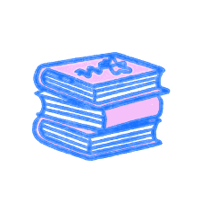Why is it a bad idea to date an apostrophe?
…Because they’re so possessive!
All jokes aside, grammar is no joke! Between apostrophes, commas, subject-verb agreement errors, fragments, and wrong word usages, there is so much to keep straight. Have no fear! We’ve got you covered. Let us help you dot all your I’s and cross all your T’s.
Let’s start with subject-verb agreement since learning grammar are key to passing the HESI.
That didn’t sound right, did it? Subject-verb agreement is very important! If the subject is singular, the verb should be singular. If the subject is plural, the verb should be plural. Here’s the correct form of the above sentence: Learning grammar is key to passing the HESI.
Now let’s talk apostrophes. Most everyone knows that apostrophes are used to show that someone possesses something: Julia’s dogs are large.
The above example about Julia’s dogs is correct. It’s a pretty simple case, so let’s look at some more complex cases.
What do we do when the word ends in s? Do we add an apostrophe and another s? The mens’s bathroom needs the attention of the custodian.
No! When the noun is plural AND ends in s, the correct form is to just include only an apostrophe: The mens’ bathroom needs the attention of the custodian.
However, when the noun is singular and ends in s, the correct form is to add an apostrophe AND s. For example, Her boss’s new car is impressive.
Lastly, when the noun is plural and does NOT end in s, the right move is to add an apostrophe and s. For example, The deer’s water source froze overnight.
Got it down? Well, hang on tight. There are more uses for apostrophes. Apostrophes are also used to form contractions. Below is a list of common contractions.
Don’t: do not
Won’t: will not
Couldn’t: could not
Shouldn’t: should not
Haven’t: have not
Hasn’t: has not
Hadn’t: had not
I’m: I am
I’ll: I will
You’re: you are
You’ll: you will
He’s/she’s: He is/she is
That’s/It’s: that is/it is
They’re/We’re: they are/we are
What’s: what is
That was quite a list. Speaking of lists, let’s talk commas since we know that one use of commas is to separate items in a list. Here’s a rundown of some more uses of commas:
• Commas are used before conjunctions (and, but, or, etc.) to separate independent clauses. We know they are independent because they could stand alone. I crossed the street, and I stopped at my favorite pizza shop.
• Commas are used after an introductory phrase. After the test began, I felt my pulse normalize.
• Commas are used to set off clauses. Barack Obama, the former president, hosted a benefit gala last week.
• Commas are used to set off quotations. John said, “I disagree.”
• Commas are used when a person is directly addressed. Tom, I need you to hear me.
• Speaking of addresses, commas are used with dates, addresses, titles, and numbers as well.
Another topic that causes confusion is sentence fragments. What makes a sentence a sentence?
A complete sentence has a main clause and expresses a complete thought. In other words, you need a subject and a verb to form a complete sentence.
Here are some examples of complete sentences:
• I took my dog for a walk this morning.
• Please remember to take your medicine.
• I would like to become a doctor.
Here are some examples of incomplete sentences:
• After three.
• Those bags over there.
• The burger restaurant.
One final topic to cover is word usage. The English language has more than 170,000 words. That’s a lot to keep straight!
Don’t let that number scare you. The exam tests your ability to use your grammar skills to solve for the correct answer, not the sheer volume of vocabulary in your arsenal. Things to look out for include:
• Affect vs. Effect
• Among vs. Between
• Amount vs. Number
• Good vs. Well
• Its vs. It’s
• Farther vs. Further
• Then vs. Than
• Which vs. That
• Fewer vs. Less
Still on the fence? Here are a few practice questions to help you gauge your proficiency.
1. Which of the following is correct?
A. The two best things at the park was the slide and the swing.
B. I can’t believe its Monday.
C. The kid hopped onto her bike and she drove away quickly.
D. I enjoy reading, but I could use some help with grammar.
E. More than one of the above
The correct choice is D.
2. Which of the following is correct?
A. Her rude remarks affected the vibe of the entire room.
B. Those shoes on the shelf.
C. Carla I need coffee.
D. The tickets we’re $9 per person.
E. None of the above
The correct choice is E.
3. Which of the following is correct?
A. The Popes’ car is unique.
B. Some of the toys are on the floor.
C. His paper airplane went further than mine.
D. After five I will be available.
E. None of the above.
The correct choice is B.

